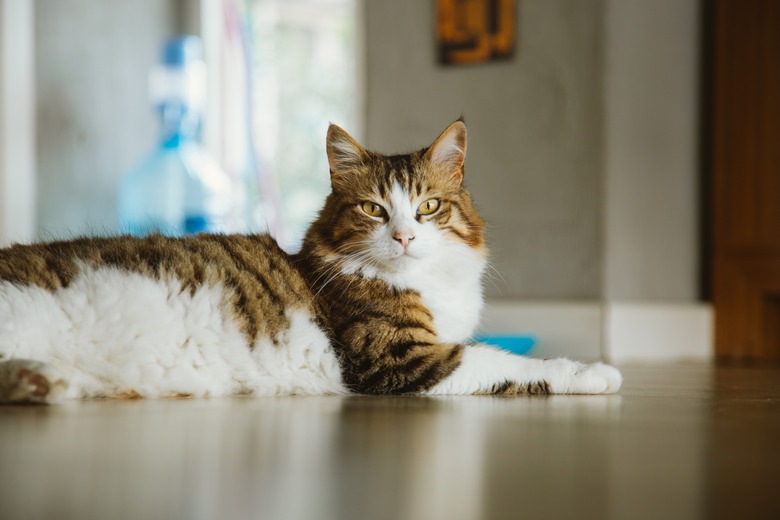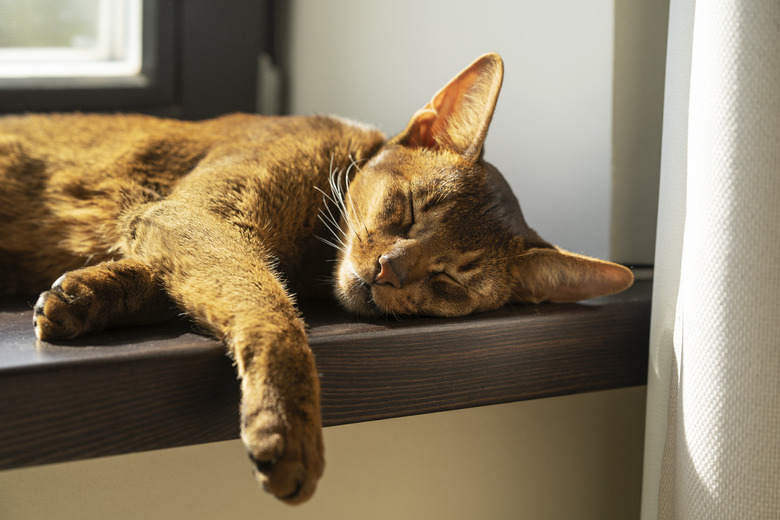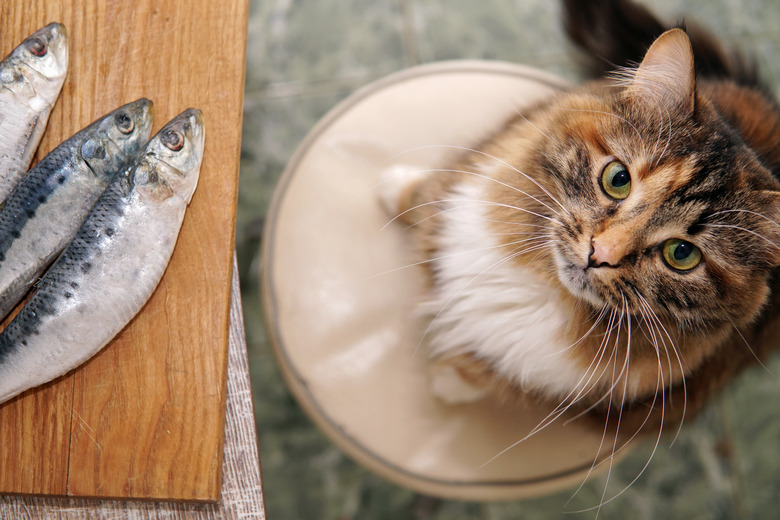Vitamin E For Cats: Benefits, Sources & Deficiency
Benefits of Vitamin E For Cats
If you're feeding your cat a balanced diet of pet food high in nutrients, chances are you don't have to worry about whether they're getting enough vitamin E. We spoke with Dr. Shagufta Mulla, a veterinarian with a DVM degree from Colorado State University with 20 years of experience as a small animal veterinarian, to learn how a fat-soluble vitamin, vitamin E provides a host of benefits to a cat. "Humans can actually get vitamin E toxicity by over supplementing themselves and this creates an increased risk of bleeding," says Dr. Mulla. However, his is not a danger in cats.
What are the benefits of antioxidants for cats?
What are the benefits of antioxidants for cats?
Antioxidants counter a substance called free radicals. Free radicals are a normal result of oxidation and metabolism, but if not controlled, they can cause oxidative damage to cell membranes and DNA. Antioxidants, such as vitamin E, stabilize free radicals and reduce oxidative stress, helping to support a healthy immune system and circulatory system. Vitamin E helps minimize pollution's effects and helps give a cat healthy skin healthy and a strong body.
Is your cat getting enough vitamin E?
Is your cat getting enough vitamin E?
Adult cats typically won't need higher concentrations of vitamins if they are eating a healthy commercial cat food. When checking the vitamin E content in your cat's food, look for d-alpha-tocopherol, as this is the most effective type of the vitamin to support cell health and immune function. If you think your cat might benefit from a multivitamin or additional vitamin E, it's a good idea to check with your veterinarian.
When considering vitamin E supplementation, remember that overdosing isn't a danger for a cat, but vitamin E deficiency is a different story. As an antioxidant, the vitamin protects cell membranes and helps with cardiovascular health, vision, neurological function, and immune health. A deficiency can lead to cell damage in your cat's vital organs, including the heart, liver, and nerves. Symptoms that your cat is deficient in vitamin E include muscle weakness, heart dysfunction, and hepatitis.
The disease known as steatitis, or yellow fat disease, is also a result of a vitamin E deficiency, leading to a dull and greasy coat, lumpy fat deposits under the skin, lethargy, loss of appetite, pain, and fever. "Steatitis can occur in cats of any age, though it is more likely to occur in obese cats," says Dr. Mulla, which is another reason to maintain a healthy weight for your cat with a balanced diet. A diet high in polyunsaturated fatty acids ("PUFA fats like omega-3 and omega-6), such as marine fish oils found in tuna, can lead to steatitis and vitamin E deficiency. These unsaturated fats destroy vitamin E. "The problematic high fish diets are high in PUFAs," explains Dr. Mulla.
To alleviate steatitis and its symptoms, the problematic fat source should be removed from the diet, and a vitamin E supplement, or d-alpha-tocopheral, should be administered.
Healthy feline diet and supplementation
Healthy feline diet and supplementation
Your best bet to maintain your cat's health and ensure they are getting the vitamins they need is to feed them a well-balanced diet intended for cats. "Diets made without professional advice are more likely to be incomplete and unbalanced," Dr. Mulla says. The daily recommended amount of vitamin E for cats is 30 IU/kg. Of course, your cat's body weight needs to be taken into consideration. Avoid a diet of mostly fish. "The issue isn't that fish is low in this nutrient," explains Dr. Mulla. "It's that the polyunsaturated fats in the fish can destroy vitamin E in the cat's body."
If you're opting for a homemade diet for your cat guided by professional nutritional direction, you'll need to ensure it has the recommended amounts of all vitamins and nutrients. "Any reputable source will list the nutritional recommendation for vitamin E in IUs (international units) not grams or milligrams," notes Dr. Mulla. "The AAFCO food requirement for cat food is listed as 30 IU/kg of dry matter of food." For instance, cats need vitamin A, arachidonic acid, and taurine in their diet. They also need a certain amount of fat and protein, the amino acid arginine, and vitamins niacin and B6. Dietary fats facilitate the absorption, storage, and transport of fat-soluble vitamins, like vit E. They are also a source of essential fatty acids that protect cell membranes.
The bottom line
The bottom line
Vitamin E is a healthy nutrient and antioxidant for cats. They typically can't get too much of it, but a vitamin E deficiency can lead to health problems. A nutritious cat food will generally have enough vitamin E for it to have beneficial effects for your cat. A dietary supplement is also an option if needed.


